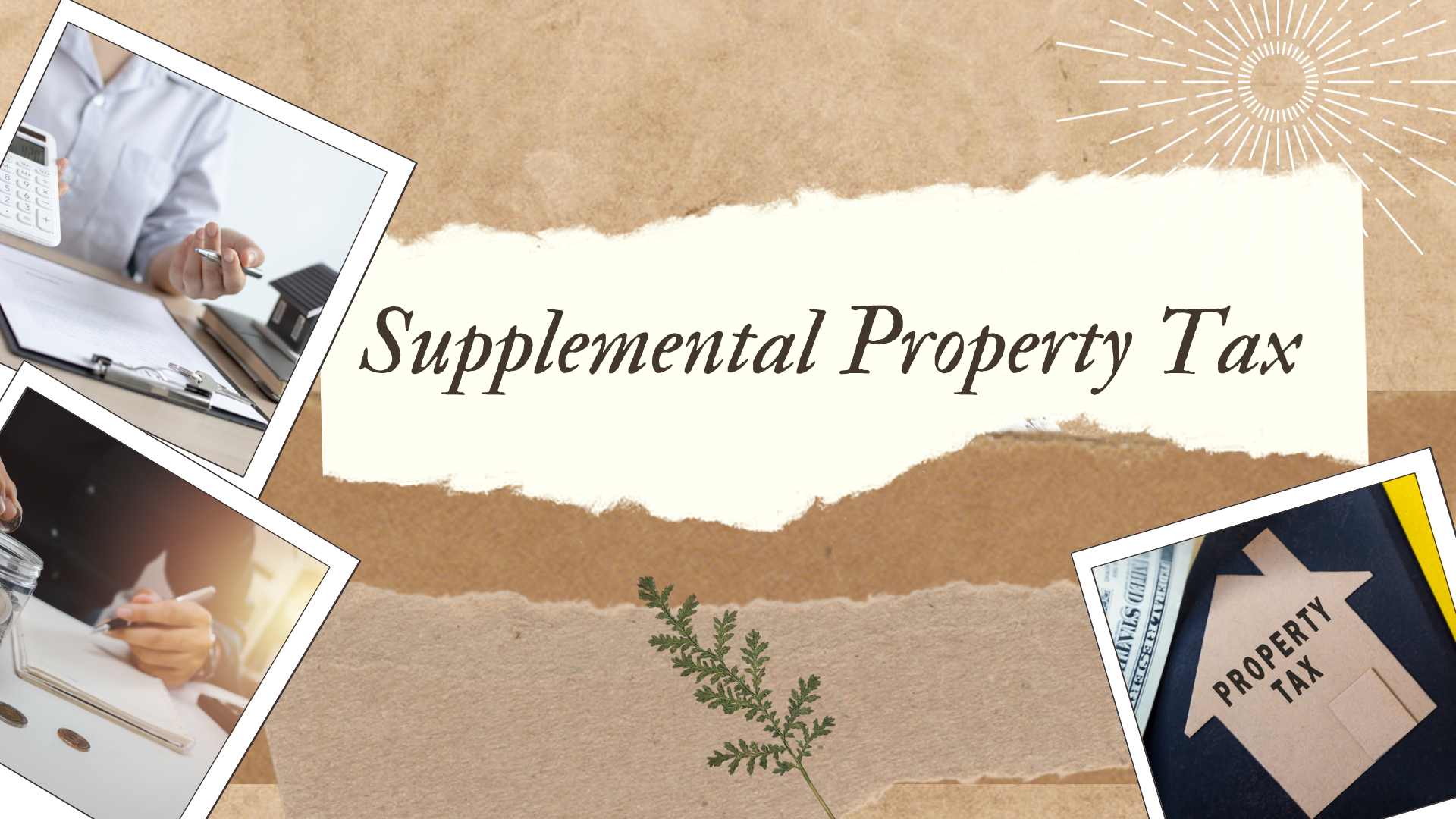 Supplemental property tax is an additional tax imposed on the increase in the assessed value of a property that occurs due to a change in ownership or new construction. This type of tax is prevalent in areas where property taxes are based on the assessed value of real estate.
Supplemental property tax is an additional tax imposed on the increase in the assessed value of a property that occurs due to a change in ownership or new construction. This type of tax is prevalent in areas where property taxes are based on the assessed value of real estate.
Here’s how it typically works:
1. Change in Ownership or New Construction:
– Change in Ownership: This occurs when a property is sold or transferred to a new owner.
– New Construction: If you add new structures or make significant improvements to your property, it may trigger a reassessment.
2. Assessment of New Value:
– When a change in ownership or new construction occurs, the local tax assessor re-evaluates the property’s value to reflect its current market value.
3. Supplemental Assessment:
– A supplemental assessment is then calculated based on the difference between the old assessed value and the new assessed value.
4. Who Pays:
– The new property owner is typically responsible for paying the supplemental property tax. This tax is not pro-rated between the old and new owner; it is the responsibility of the owner as of the date of the change in ownership or completion of new construction.
5. When It Is Paid:
– The payment of supplemental property tax is due at specific intervals. The exact timing can vary by location, but it is often due in addition to the regular property tax bill and may be due on a prorated basis for the remainder of the fiscal year.
It’s essential for property owners to be aware of supplemental property taxes when buying or improving a property, as they can significantly impact the overall cost of ownership. Local tax authorities or county assessor’s offices typically provide information on the specific rules and timelines for supplemental property tax payments in a given area.


 Facebook
Facebook
 X
X
 Pinterest
Pinterest
 Copy Link
Copy Link